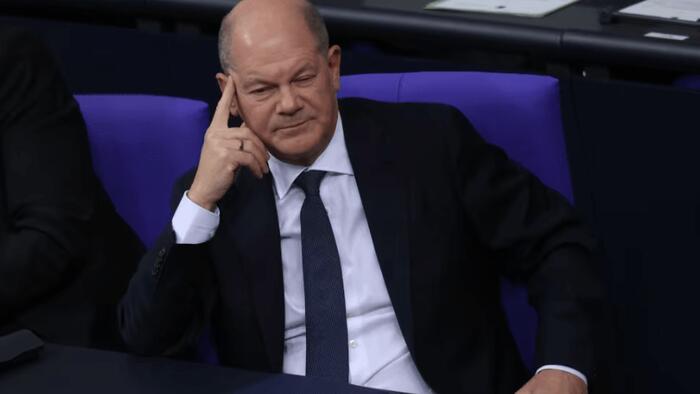The recent turmoil within Germany’s political and economic landscape is a culmination of long-standing issues, as highlighted by Mike Shedlock on MishTalk.com. For over a decade, there has been a growing consensus that Germany’s economic decline was not just possible but inevitable, with key factors such as stagnation and the loss of competitive edge emerging as prominent issues. Bloomberg reports that Germany’s economy is now 5% smaller than it would have been had it maintained pre-pandemic growth trends, an alarming sign considering the structural challenges faced, particularly pertaining to energy dependence and industrial competition. The ongoing struggles of major German automakers like Volkswagen and Mercedes-Benz to keep up with rapidly advancing competitors in China further exacerbate the situation, leading to an average loss of €2,500 ($2,600) annually for German households.
Investment shortfalls, particularly in public infrastructure and private sector machinery, present a daunting challenge. Analysis points to a required annual increase in investment of about 33% to catch up with other advanced economies, equating to over €160 billion or more than 1% of GDP. However, due to bureaucratic hurdles and regulatory unpredictability, private sector investment has waned, with many family-owned businesses opting not to replace outdated machinery. This has resulted in a clear decline in Germany’s industries and overall competitiveness, marking a shift that could become irreversible without significant changes to investment policy and economic strategy.
In the midst of this economic downturn, the German government itself is experiencing a collapse, with Chancellor Olaf Scholz losing a critical confidence vote. This political instability raises further questions about the future direction of the government, as discussions turn towards early elections that might simply shift power between similarly fractured coalitions. Both the ruling coalition and the opposition appear to be locked in a gridlock, characterized by conflicting agendas. For instance, while Scholz advocates for bailouts to prop up industries, opposition leader Friedrich Merz promotes pro-business reforms which might dilute necessary climate objectives. The political landscape suggests that without a radical reevaluation of strategies, no sustainable solutions will emerge.
The fragmentation of the German political scene can be attributed to failures of previous coalitions and the immediate unsuitability of potential allies. The long-standing “Grand Coalition,” which combined the major parties, failed to address the fundamental issues facing the nation and led to the weak coalition known as the Traffic Light government. This dynamic has not only hampered the coalition’s ability to form coherent policies but has also resulted in a profound sense of disillusionment among the electorate. The hardline stances of alternative parties like AfD and BSW further complicate alliance-building and have been labeled as toxic by the mainstream political bodies.
Underlying these conflicts is a fundamental question about the sustainability of the eurozone itself, which many experts, including Shedlock, view as fundamentally flawed. The shared currency creates difficulties, as a single monetary policy cannot account for the diverse economic realities across member states. Germany has historically benefited from the eurozone but, due to the rigidity of treaties and the inability to create a more unified economic framework, it now faces the consequences of its own policy decisions. Critics argue that past leaders, such as Angela Merkel, have failed to properly prepare Germany for existing and impending challenges, leading to an uncompetitive industrial base that does not align with global advancements, notably in tech and green energy.
Shedlock underscores the urgency of addressing these systemic issues, emphasizing that the inherent flaws in the euro and EU structure are causing untold damage to Germany’s economic prospects. As a result of governmental gridlock, ineffective responses, and a lack of leadership, the country is poised for continued decline unless substantial reforms are executed. The internal debates around energy policy, agricultural regulations, and structural economic reforms reflect this division and uncertainty, suggesting that without decisive action, Germany’s status as Europe’s economic powerhouse could diminish radically.
In conclusion, the prevailing sentiment is that Germany is at a significant crossroads, with a steep decline in both its political and economic fabric. The path forward remains murky, as ineffective government quite possibly leads toward an unsustainable future marked by increased isolation within the eurozone framework. Without a functional coalition capable of crafting effective policies or a reconsideration of the euro’s design, it seems Germany—and by extension the larger EU—faces an existential crisis that could limit its global economic influence for years to come. The stakes are high, not just for Germany but for the stability and economic health of Europe as a whole.

